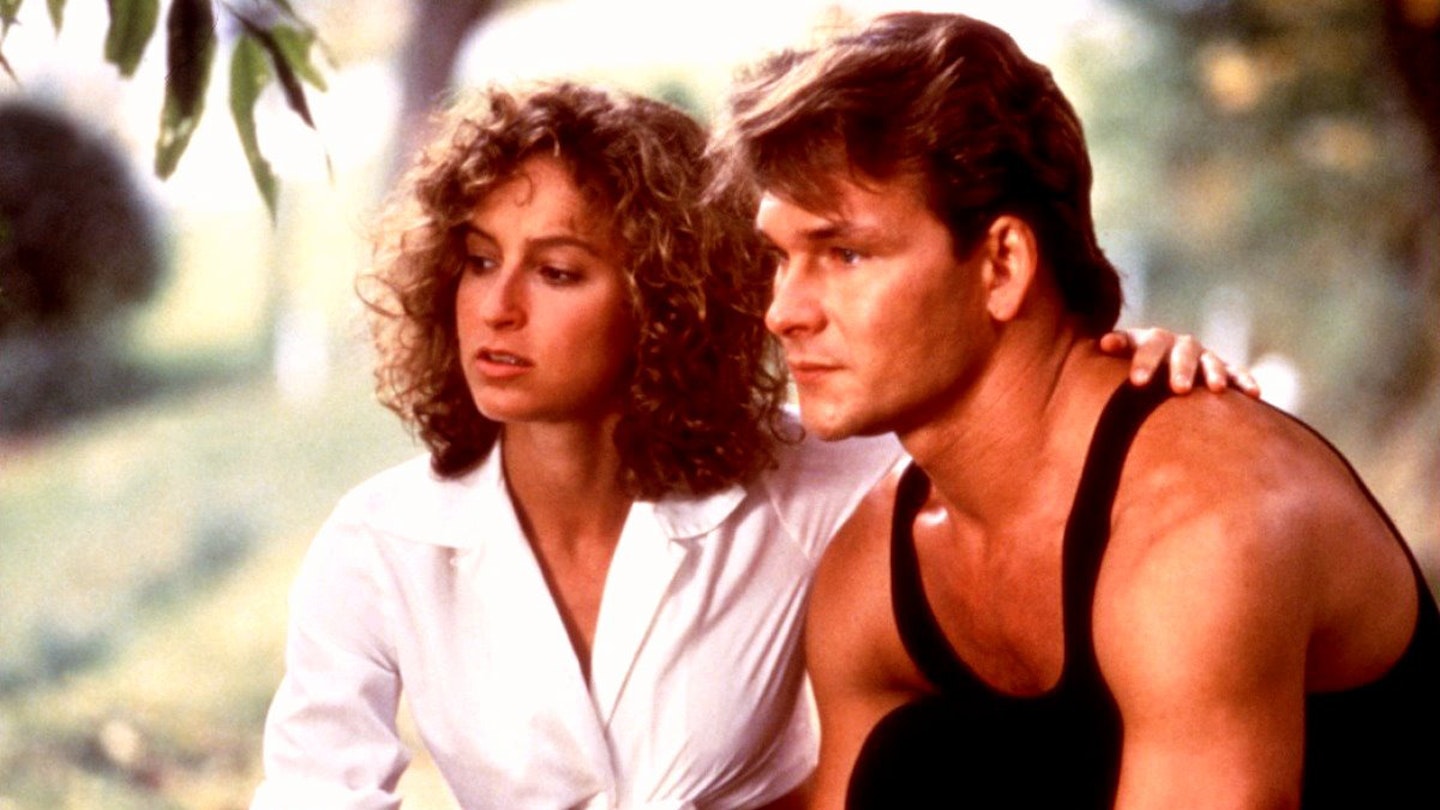For some women it's close to religion. For most men it might as well be dubbed in Swahili. Dirty Dancing is one of the eighties' most iconic movies but one that has never really crossed the gender divide. In an attempt to help men everywhere better understand why carrying a watermelon is so profound or why you never, ever put Baby in the corner, we tasked an uninitiated male with unraveling the secrets of the ultimate chick flick.
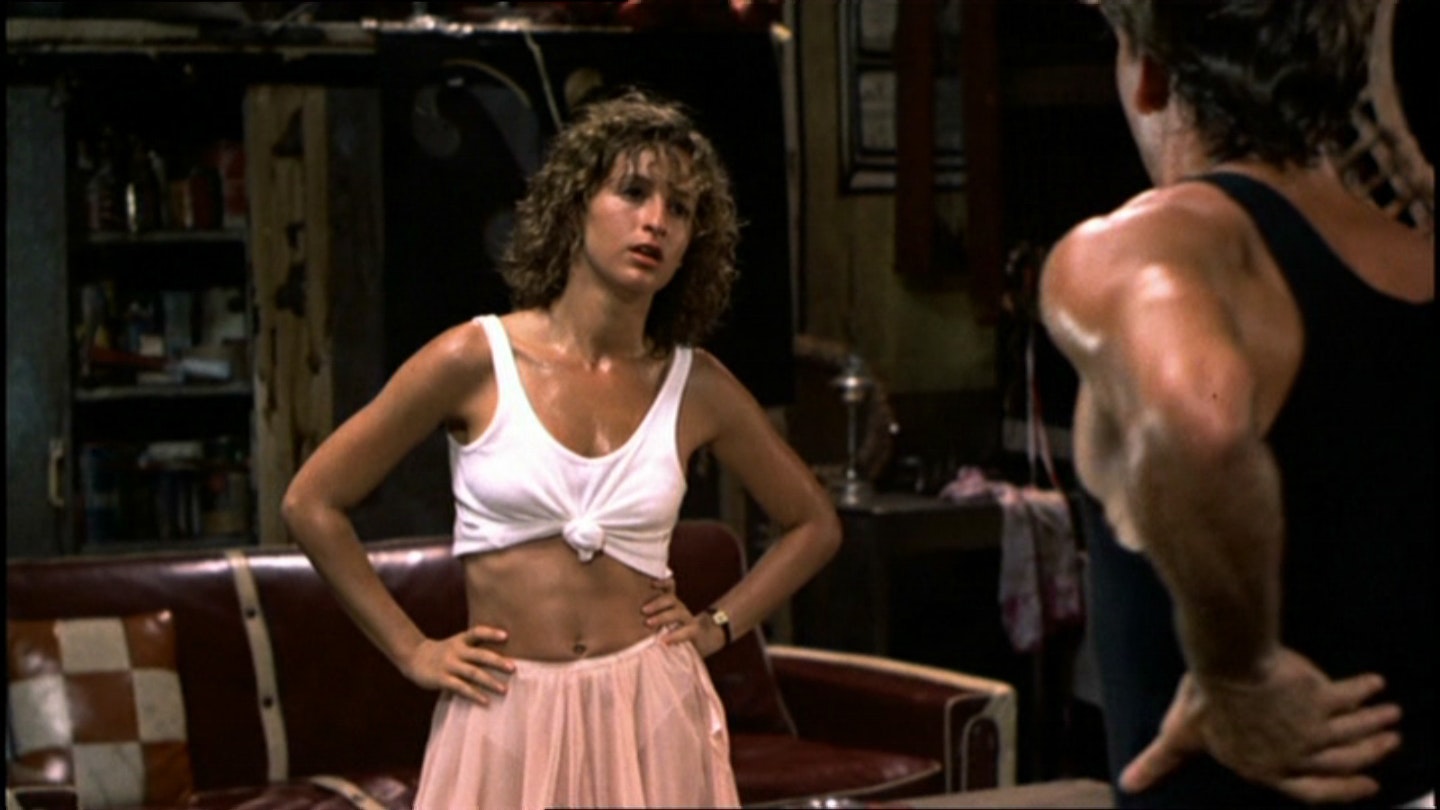
In the same way that they don't tend to read Judy Blume novels, act out the lyrics to I Will Survive or treat themselves to a long day at the spa, men do not, as a rule, 'get' Dirty Dancing. Equally, women are less likely to obsess over films full of Nazis and explosions. The twain are destined never to meet – otherwise the most successful film in history would be called The Dirty Dancing Dozen.
But what if men are missing something important? Shouldn't men attempt to decode the mysteries of a film so sacred to the female heart? And what better way to mount an investigation than convening a seven-woman study group in the form of a slumber party – Gill, Hannah, Kaisa, Lucy, Lyndsey, Rori and Sara – to watch the film while I frown and nod and take notes like a weirdo?
So here we are, ready to begin. The soundtrack CD is blaring, the rosé is flowing, the chocolates are disappearing fast and I am asking all the wrong questions. Does it bother anyone else, I wonder, that the soundtrack keeps hopping between early-'60s classics and horrible, over-processed '80s ballads without any explanation whatsoever?
The women shake their heads pityingly. "That," sighs Gill, "is such a man's question ... "
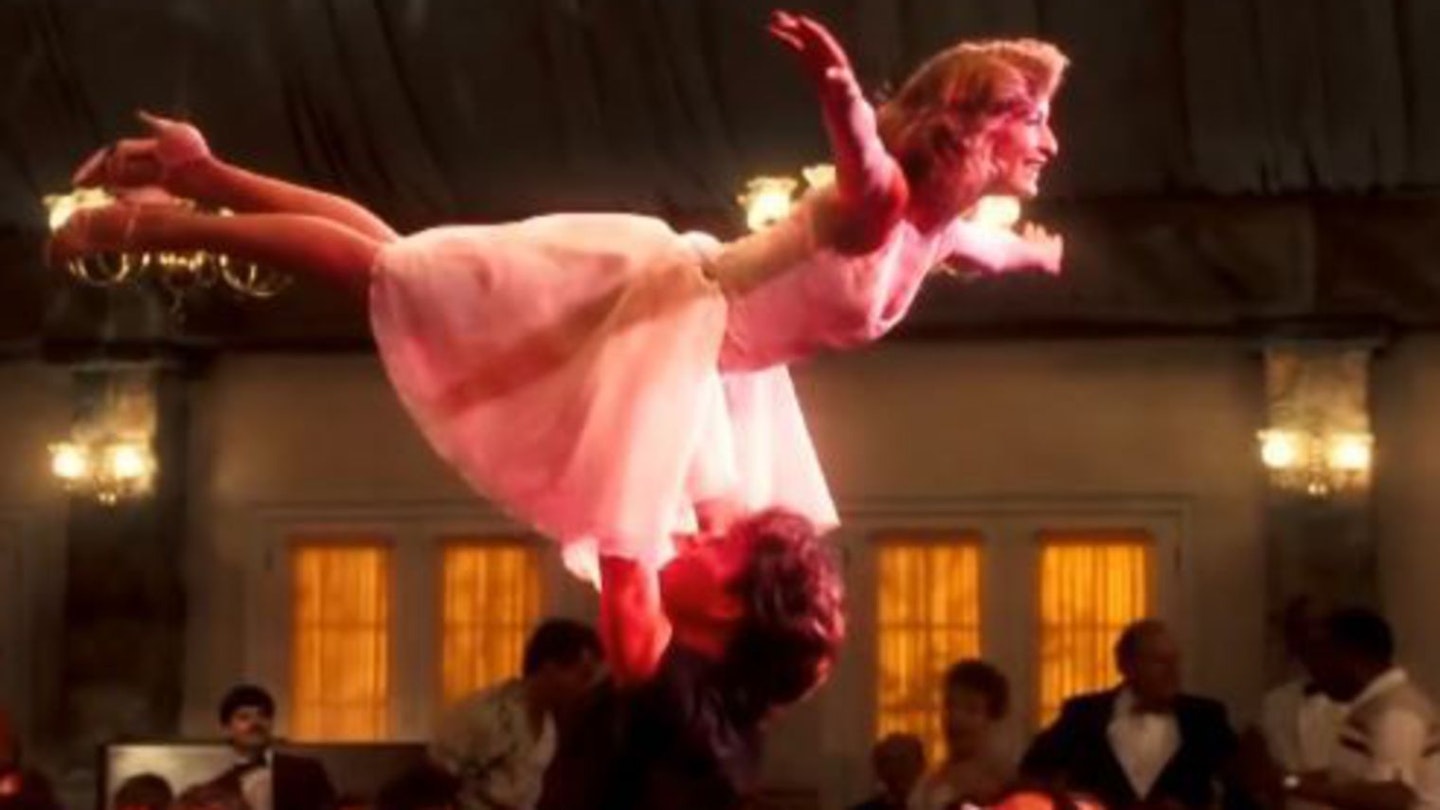
Upon Dirty Dancing's New York opening on August 17, 1987, screenwriter Eleanor Bergstein was so convinced it would close early that she went to every show. On the fifth day, she was sat in a cinema on 84th Street when her husband, Michael Goldman, noticed that the girls in the row in front were singing every word to one of the songs. "Do you see what that means?" he said, "It's only the fifth day and they must already have seen it enough times to know the words by heart."
Goldman was right. They kept coming. Produced for $5 million, Dirty Dancing raked in more than $213 million, making it one of the most successful independent films ever made. It was also the first film to sell a million copies on video, (There are no figures to indicate how many of them were bought by men. I'm guessing around seven, all of whom assumed it was an adult movie and were sorely disappointed). It may not be, as some have said, the female Star Wars (that would be Star Wars), but it is watched in the same way: so routinely that every scene, every line of dialogue becomes engraved in the memory. Dirty Dancing is a brand, an industry, a cult, a way of life.
Dirty Dancing is one of the most successful independent films ever made.
Undaunted by the failure of 2004 sequel Dirty Dancing: Havana Nights, the original film's power became stronger than ever. That same year, a sell-out stage musical rolled across the globe like an unusually upbeat invading army. In the US, a reality show invited the film 's fans to compete for a dance contract. In Germany, a Eurodance version of Patrick Swayze's unfortunately titled She's Like The Wind became the summer hit of 2006. In Britain, (I've Had) The Time Of My Life, the Oscar-winning theme song performed by Billy Medley and Jennifer Warnes, was named the third most popular song played at funerals. Dirty Dancing is not just a chick flick . It's the chick flick .
As the years went on, Swayze began to discuss his most famous role with as much exasperation as admiration. "This," he declared, "is the movie that will not die. "
But why? What is its secret? In fact, what actually happens in it? It is a week before Empire's slumber party. I know that there's some hoo-hah about putting Baby, whoever he/she/it may be, in a corner. I know that Jennifer Grey is not the same as Jennifer Beals from Flashdance. I know that (I've Had) The Time Of My Life makes me feel queasy. And that is the sum total of my Dirty Dancing knowledge.
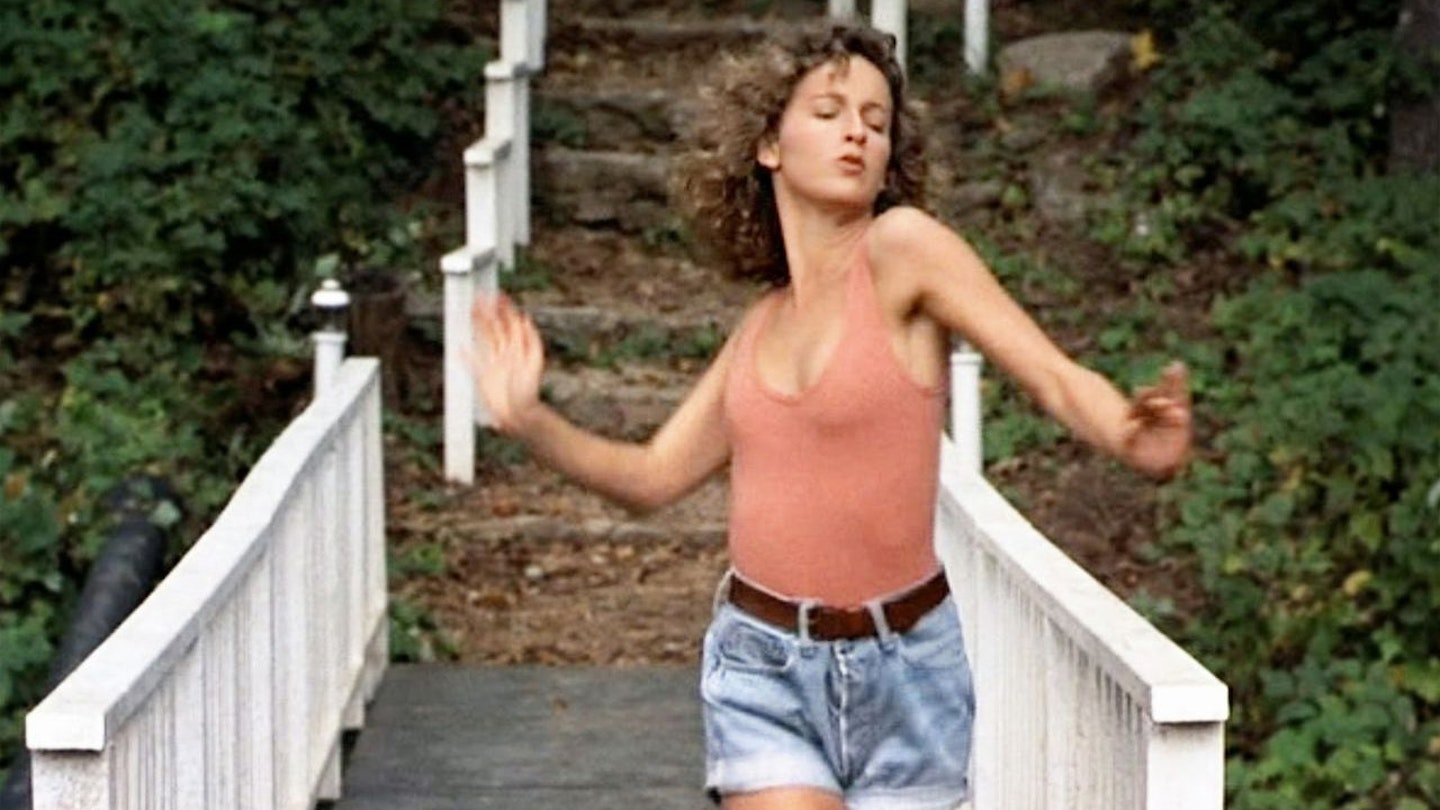
Armed with a DVD and a notepad, I set out alone on the road to enlightenment. I am expecting a bad movie. At the time, the New Yorker's Pauline Kael decreed that it "starts smart and ends dumb". Roger Ebert dismissed it with a single star: "The movie plays like one long, sad compromise; it places packaging ahead of ambition."
But it's a sturdily constructed piece. For those that may not know the story (ie most men), it takes place in the summer of 1963, a few months before JFK died – which, in screenwriter shorthand, is when America lost its innocence. Those were simpler times, when the biggest threat to the nation's morals was risqué hip-shaking rather than, say, crystal meth or drive-by shootings.
Dirty Dancing is a brand, an industry, a cult, a way of life.
Frances "Baby" Houseman (Grey) is a smart but plain Jewish girl with a shallow, overbearing sister and a loving but overprotective doctor father played by the late Jerry Orbach, subsequently best known as sardonic, bloodhound-faced cop Lennie Briscoe in Law & Order. The Housemans spend their summer vacation at Kellerman's, a Butlins-style holiday resort in the Catskill Mountains, where, almost without exception, the rich characters are creeps. One night, Baby comes across the resort's hired hoofers, led by Swayze's smouldering alpha male Johnny Castle, indulging in dancing which might fairly be described as dirty. When Johnny's regular dance partner needs a backstreet abortion, Baby has a week to learn the moves and take her place. Swayze teaches. Baby learns. They dance. They have sex. Jerry Orbach disapproves. Johnny leaves. Johnny comes back. Baby is in a corner. Johnny removes Baby from the corner. They dance. Everybody smiles and jigs along. Even Jerry Orbach. Credits roll. It's not bad.
The making of this underdog story was an underdog story itself. Eleanor Bergstein based the tale on her own life. Like her heroine, she was a Jewish New Yorker who had a doctor for a dad, holidayed in the Catskills and went by the name of Baby. But she was also a thickskinned Brooklynite who learned to dance in the streets and paid her university fees by working as a dance teacher, so she was partly Johnny, too.
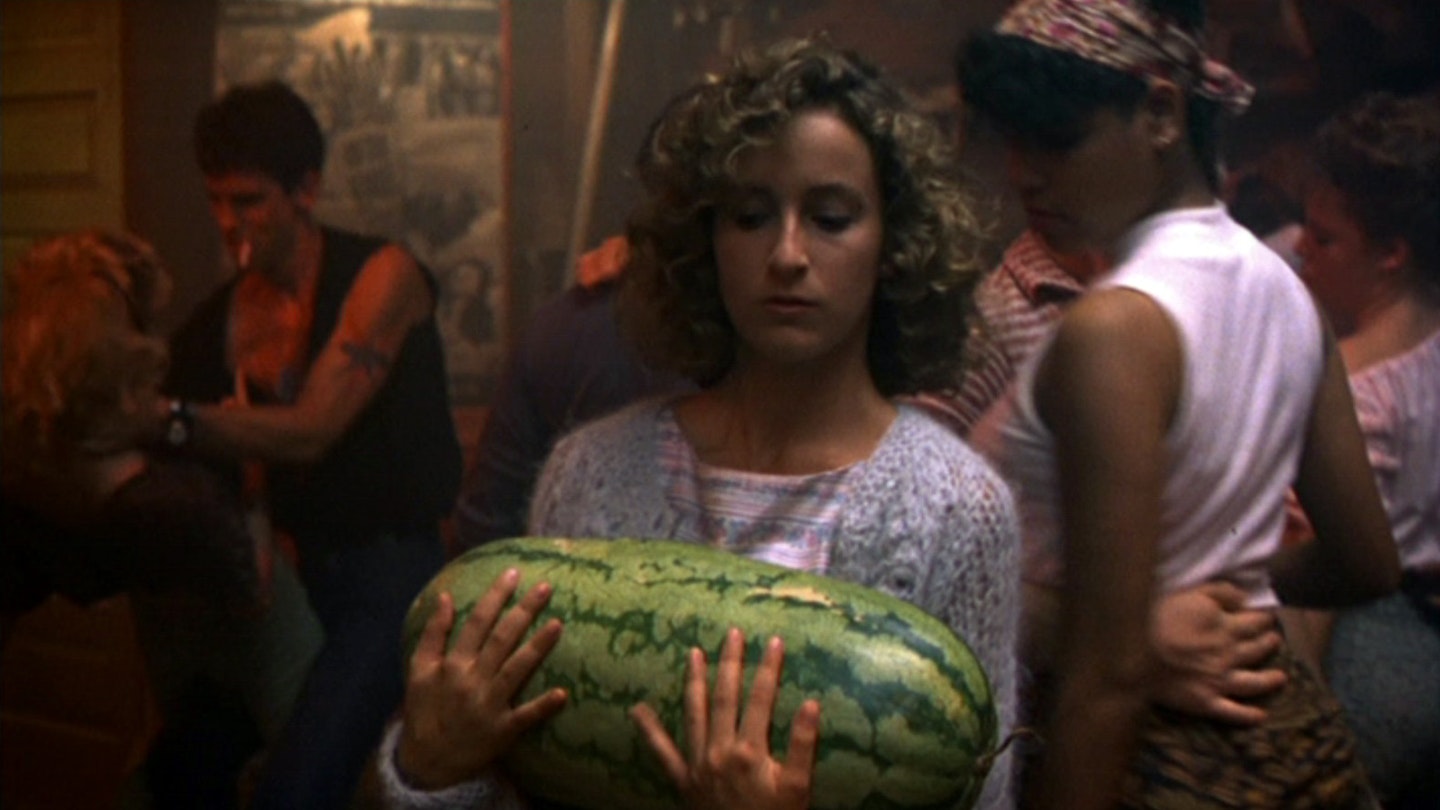
Bergstein spent ten years shopping the film around, enclosing copies of the soundtrack with every screenplay and demonstrating dance moves in the offices of sceptical studio executives. Eventually, she found a taker in the form of independent production company Vestron. Money was so tight that it would have been prominently sponsored by an acne cream manufacturer had the company not objected to the abortion storyline. From its first week of release, this low-budget dance movie with unknown leads was a sensation.
But this isn't getting me any closer to the core of Dirty Dancing's quasi-religious appeal. I look at my notes: "JFK ... Jewishness... Law & Order... Class conflict... Swayze's stupid hair ... Metaphor for loss of virginity?... '80s music?" Bah. This is no good. I'm seeing the trees but not the wood. I need assistance.
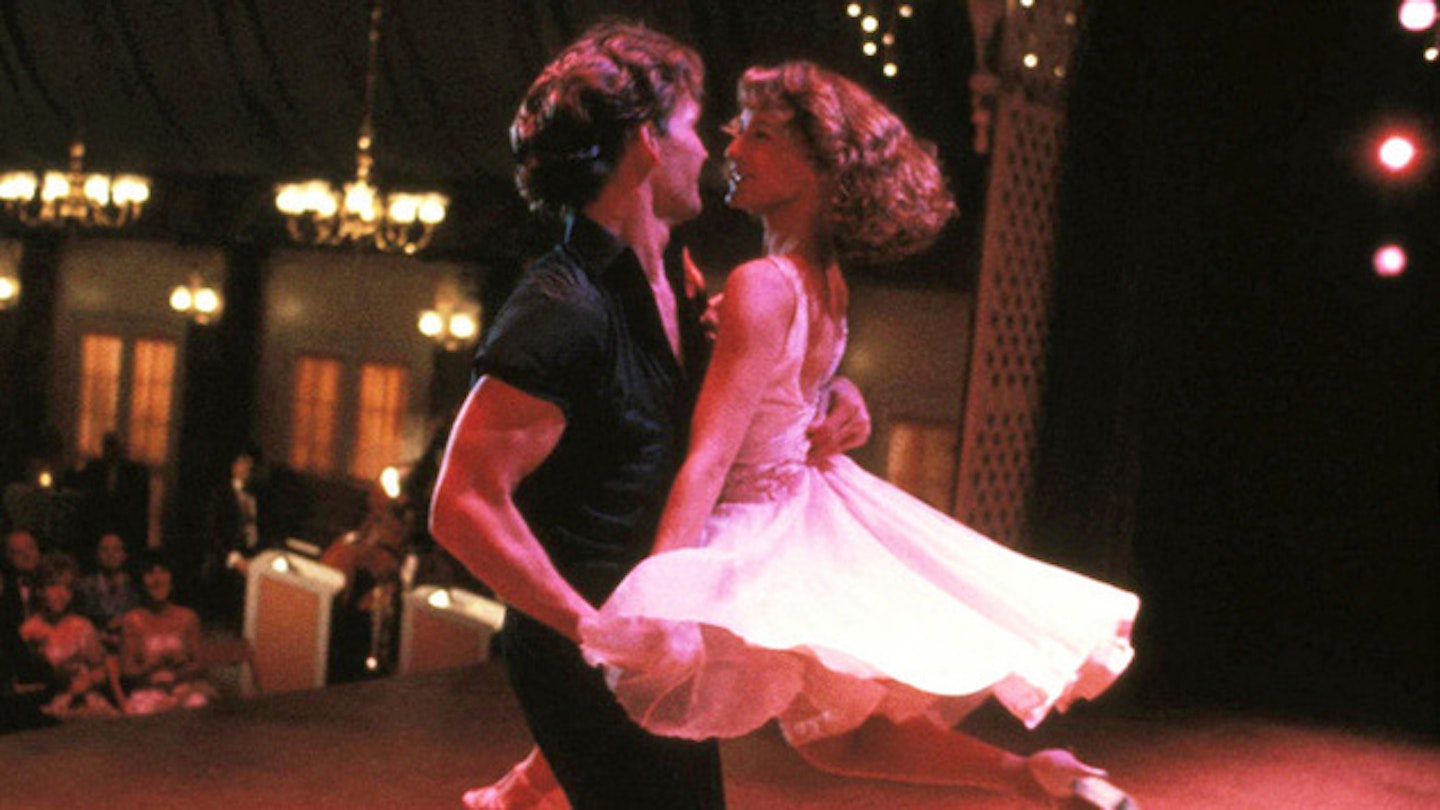
At the Vanity Fair Oscar party in 2000, a 15 year-old Scarlett Johansson embarrassed herself. "When I was little, Dirty Dancing was my favorite movie," she later recalled. "So when I saw him, I was like, 'Oh my God, it's Patrick Swayze!' He was talking to Terry Zwigoff, and I just butted in and said, 'Patrick? I. Love. You. I have loved you since Dirty Dancing.' He said, 'Wow, that was a long time ago.' Then he gave me this weird look like, 'Psycho.'"
Sadly, Scarlett's people would not return Empire's calls regarding our sleepover, but we have seven willing volunteers in whose hearts Dirty Dancing's flame burns eternal. None of them can say exactly how many times they've seen the movie, but it's plenty. When Kaisa was five, she watched it every day. None of them have viewed it with a man before. "If my boyfriend wanders in, he gets screamed at," Lucy explains. The others murmur their consent.
None of them can think of a film that rivals Dirty Dancing in the pantheon of female-friendly classics. A quick straw poll reveals support for Pride & Prejudice, Love Actually, Grease, Pretty Woman, The Notebook and Bridget Jones's Diary (when you think about it, Bridget is exactly the kind of woman who would have grown up with Dirty Dancing), but Baby and Swayze still rule the roost. "It's a classic narrative," Gill explains. "It ticks all the boxes. These things run through highbrow films as well. This just happens to be tacky
and fabulous."
Bergstein sketched out the retro soundtrack even before she wrote the script.
As the unmistakeable bum-bum-bum-BOOM of The Ronettes' Be My Baby heralds the opening credits, the girls sing along under their breath and stare intently at the screen. The music forms the spine of Dirty Dancing. Bergstein sketched out the retro soundtrack even before she wrote the script, and the official CD has sold a mind-boggling 39 million copies. "It definitely wouldn't have been a classic without the music," says Hannah.
Dirty Dancing's next key component is Baby. Attractive but not too attractive, witty but slightly geeky, she is the kind of woman other women like. "I think she looks like a young Carrie Bradshaw," says Hannah. "She's not traditionally pretty."
"She's a girl about to become a woman," says Gill. Jennifer Grey, who was 27 playing 17, would later admit that having surgery on her nose was the biggest mistake of her life because it made her virtually unrecognisable as the girl from Dirty Dancing. Even Swayze once explained how he and his wife "were talking to her for ten minutes before I realised who she was" . There is a moment's respectful pause in memory of Baby's vandalised hooter.
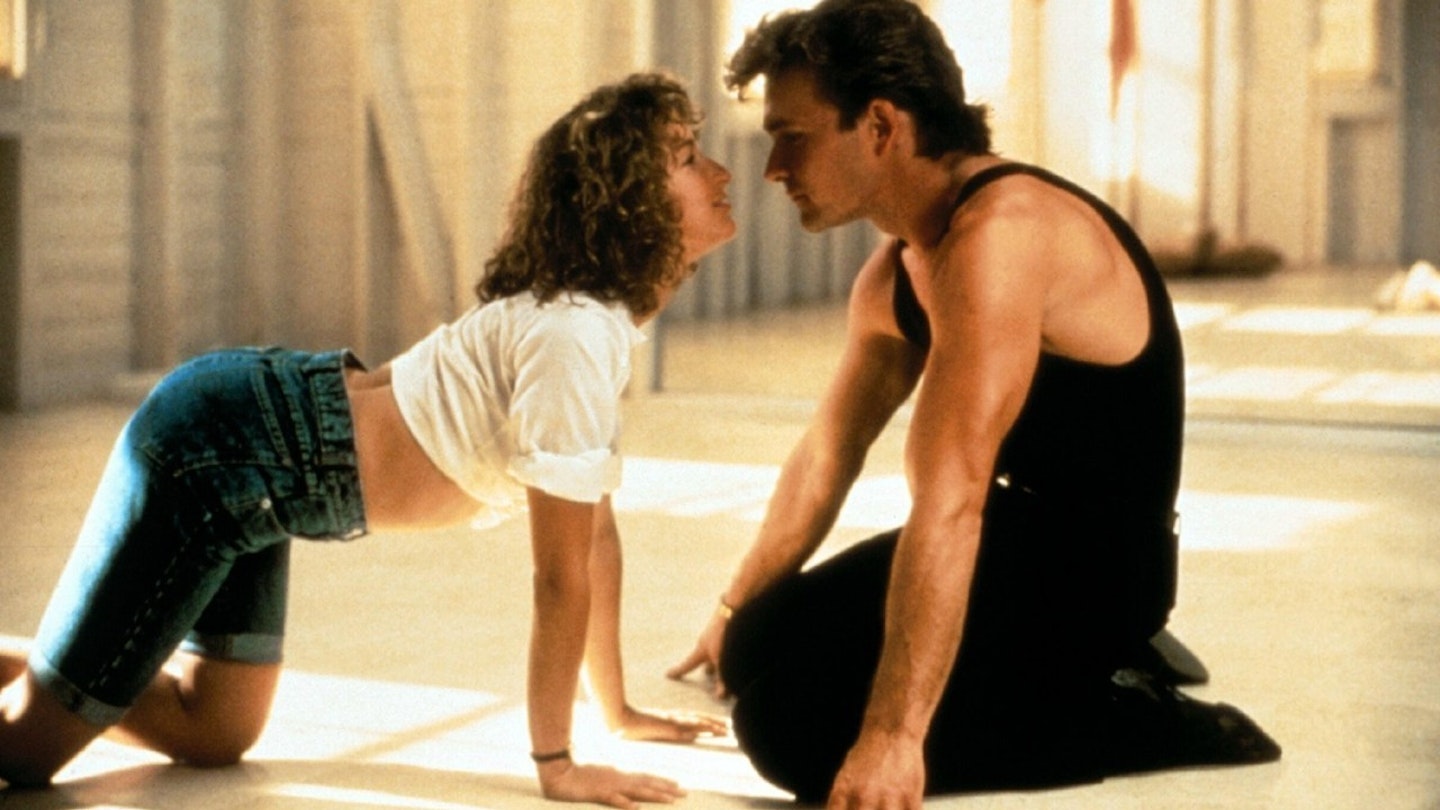
Boos mark the appearance of Mr. Kellerman's oily grandson and cheers greet the arrival of Johnny Castle. After a decade of minor roles, the 35 year-old Swayze got his big break only because Val Kilmer turned down the role and Billy Zane's footwork wasn't up to scratch. This may be a stupid question but seriously, what's the appeal? "He's a bit arrogant, a bit off and he doesn't act like he needs us," Lucy says emphatically. "And he has good gay qualities but he's really masculine."
"He's got Fonz appeal," ventures Hannah. "He'll walk into the room and everyone will look at him and he's like, 'Heyyy!' And he can dance. "
"He's a bad boy but he can dance and he has feelings," says Kaisa.
Gill's theory is more controversial: "I think the appeal of him is he isn't remotely appealing. He's actually quite gruesome."
I write all this down as if it's the answer to the question posed by such great minds as Sigmund Freud and Mel Gibson: "What do women want?" They apparently want an arrogant, Fonz-like, slightly gay, really masculine, quite gruesome bad boy who can dance and has feelings but doesn't need women. I wish I had known all this years ago. I could have been a contender.
There isn't one secret to Dirty Dancing's appeal, but many.
Ah, here come the dancing-as-sex scenes. Dirty Dancing must be the only film where test audiences asked for the sexuality to be toned down; but it's stIll not exactly coy. At one point, Swayze's eyes roll back in his head orgasmically. "That's probably why it's a 15," says Lyndsey. "I was allowed to watch this," marvels Rori. "It's pretty raunchy."
The women discuss the remarkable ability of children to see only what they want to see. "It was just a love story with a bit of dancing," says Hannah. And what about Cynthia's coathanger abortion? "I just thought she was a bit poorly." So what obsessed the five year-old Kaisa? "I liked the pretty dresses."
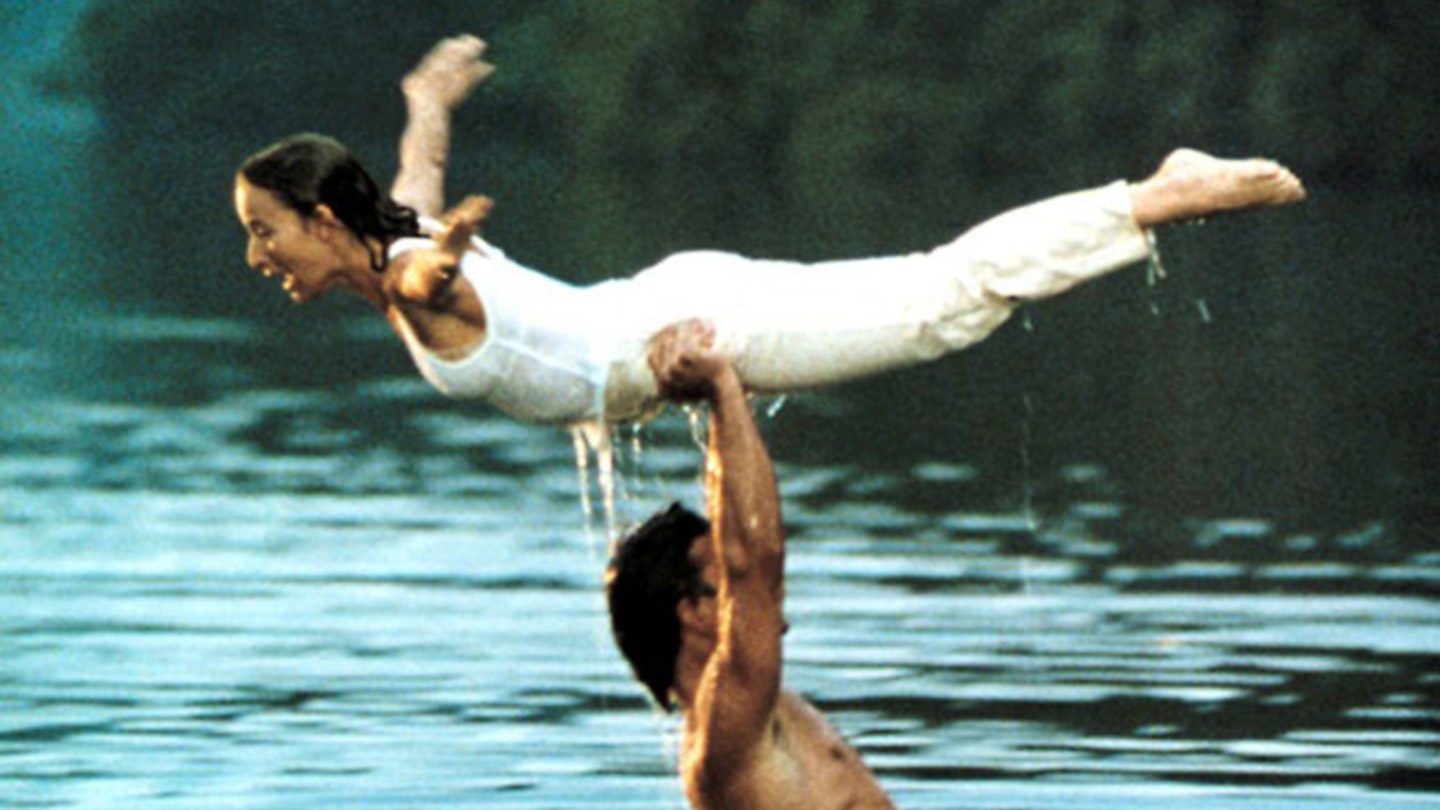
Watching it with true fans, I start to appreciate all the comic details, like the sister's rivetingly bad talent-show turn and the oily grandson's misguided enthusiasm for the pachanga. But never mind them. Here's the big moment. It's Baby! In a corner! This is the female equivalent of, "I love the smell of napalm in the morning." It's surfaced everywhere from a song by emo stars Fall Out Boy to a slogan on a baby's bib – but why? "We've all been in the corner at some point in our lives," Kasia says stirringly. "She was always overlooked and her sister was more popular and he finally stood up for her and said, 'You're not a baby, you're somebody. You don't have to go in the corner.'"
At last, everything clicks into place. There isn't one secret to Dirty Dancing's appeal, but many. There's the across-the-tracks romance between an approachable heroine and a sullen but surprisingly vulnerable bad boy; the coming-of-age story with an ugly duckling spin; the clever casting; the music; the dancing; the jokes; the clothes; and, of course, the importance of not being put in a corner. It's the chick-flick perfect storm.
And against my better judgement and all my masculine impulses, I am in the zone. I am not just in touch with my feminine side. My feminine side is swaying and singing along to (I've Had) The Time Of My Life. The experiment has got out of hand. In the name of God, please, somebody get me some exploding Nazis before it's too late...
